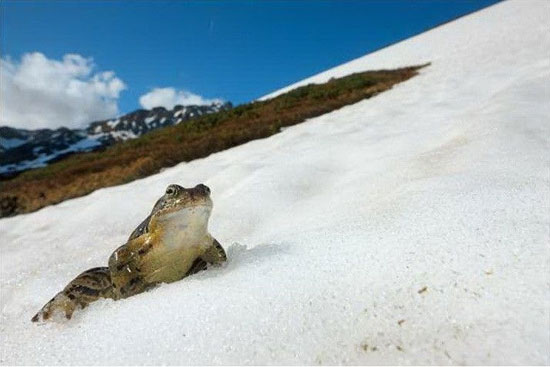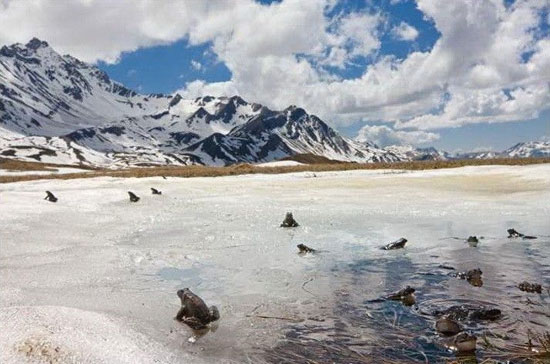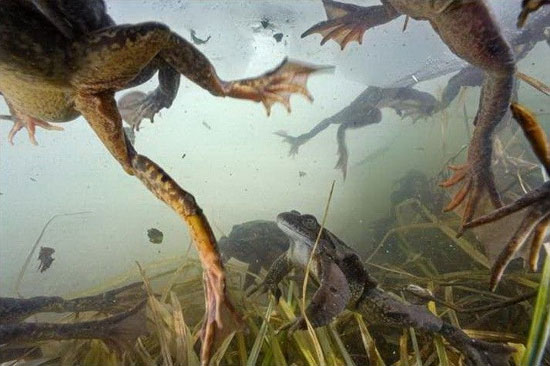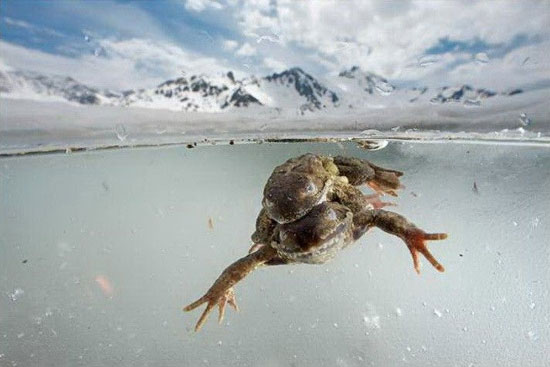See love frog on an altitude of 1.800m
Above the altitude of 1.800m, the Alps exist a unique lake. This is the home of hundreds of frogs Rana, one of the rare creatures living on this altitude, in glacial lakes.
Although the frog lake is still covered by ice, it is still possible to hear the male frog calling children. Their search journey usually begins in the spring, when the ice in the lake begins to melt.
Male Rana frogs are usually smaller than females. When spawning, the male will jump from behind to hold the female's back tightly. The breeding process will last about 2 days or maybe longer.
In these days, the male will stay on the female's back. When the female ovulates, she will pump the sperm into the egg.
During hibernation for a few months, they often sleep in a group. This gives them an advantage when spawning, in warm weather, to find a mate quickly.
Surviving at such a height, these frogs spend 30% more eggs each season than those living in the plains to ensure a high survival rate.

Rana frog on 1,800 m altitude

The melting ice is when they get out of the water to find a mate.

Rana frogs swim in the lake still covered with thin ice on the surface.

A pair of frogs in love with ice.

Finding partners and couples, they will keep this affectionate posture until the baby lays eggs.

Frog eggs Rana lays one third more than normal frogs.
- Detecting new frogs 'tiny', excessively placed on nails
- Decoding love song for frogs
- Outstanding sprawling colors of tree frogs
- Discovered the new 'tiny' frog species Diasporus in Costa Rica
- 9 odd effects of love
- Students create 'killer frogs' in the laboratory
- Discovered new tree frog species in the Central Highlands
- Strange facts that science explains about love
- Study frog's saliva to create new glue
- Black Rain Frog - Frog has a horrifying body and face
- 4 wrong thoughts about love that not everyone knows
- Video: Green frog swallowed solid for two minutes
 Why do potatoes have eyes?
Why do potatoes have eyes? 'Tragedy' the world's largest carnivorous life: Death becomes ... public toilet
'Tragedy' the world's largest carnivorous life: Death becomes ... public toilet Tomatoes were once considered 'poisonous' for 200 years
Tomatoes were once considered 'poisonous' for 200 years Detecting microscopic parasites on human face
Detecting microscopic parasites on human face